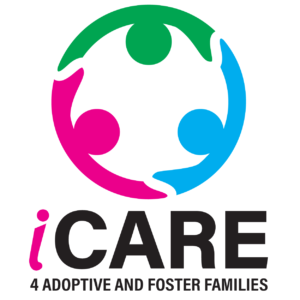
iCARE4 Adoptive And Foster Families advises leaders and professionals on evidence-based best practices for systemic change. Our board of expert clinicians, adoptive parents and educators partners with renowned organizations:
- Center for Adoption Support and Education (C.A.S.E.)
- National Center for Adoption Competent Mental Health Services funded by the Children’s Bureau, Administration of Children and Families, U.S. Dept. of Health and Human Services (HHS)
- National Adoption Competency Mental Health Training Initiative (N.T.I.) funded by the Children’s Bureau, Administration of Children and Families, U.S. Dept. of HHS
- Spaulding For Children
- National Training Development Curriculum developed by Spaulding for Children, Funded by the Children’s Bureau, Administration of Children and Families, U.S. Dept. of HHS
- National Council For Adoption
- The Karyn Purvis Institute for Children
- Baby Fold
Lack of knowledge and misconceptions on attachment trauma, adoption, foster and kinship children and families prevents children from getting the competent care and support they deserve.
It is our collective responsibility to change this.
iCARE4 Adoptive And Foster Families partners with policy makers and stakeholders to advise on the unique experiences of adopted, foster and kinship children and others affected by separation from a caregiver or displacement and support policies that improve their mental health and well-being! We advocate for ethical, evidence-based policies and services regarding adoption and foster care in an inclusive, non-partisan way.
By partnering together, we can put in place policies that support family stability and our children’s success especially in the area of school academic and mental health support.
Contact us today to:
- Increase knowledge of attachment trauma and complex developmental trauma, and how it differs from other types of trauma in both manifestations and in treatment.
- Improve understanding and attitudes towards adoptive and foster parents and families.
- Improve knowledge of how laws and policies in education, mental health care, child welfare and mandated reporting can impact the lives of children affected by attachment trauma and complex developmental trauma.
- Improve outcomes and well being for adoptive, foster and kinship children and families.
